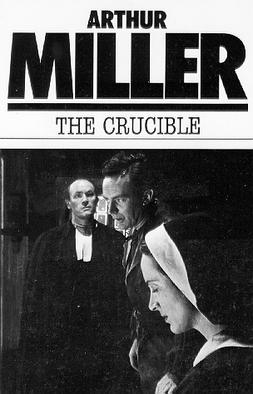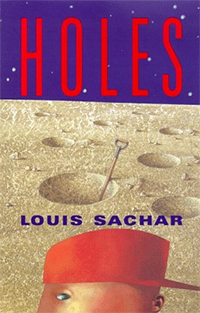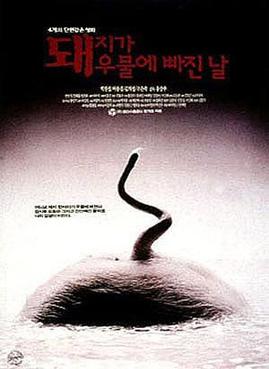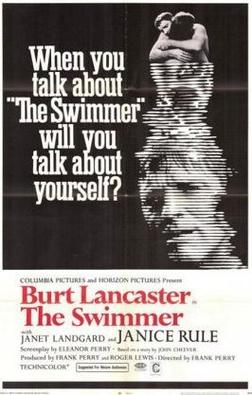Related Research Articles

The Crucible is a 1953 play by American playwright Arthur Miller. It is a dramatized and partially fictionalized story of the Salem witch trials that took place in the Massachusetts Bay Colony during 1692–93. Miller wrote the play as an allegory for McCarthyism, when the United States government persecuted people accused of being communists. Miller was questioned by the House of Representatives' Committee on Un-American Activities in 1956 and convicted of contempt of Congress for refusing to identify others present at meetings he had attended.

John William Cheever was an American short story writer and novelist. He is sometimes called "the Chekhov of the suburbs". His fiction is mostly set in the Upper East Side of Manhattan; the Westchester suburbs; old New England villages based on various South Shore towns around Quincy, Massachusetts, where he was born; and Italy, especially Rome. His short stories included "The Enormous Radio", "Goodbye, My Brother", "The Five-Forty-Eight", "The Country Husband", and "The Swimmer", and he also wrote five novels: The Wapshot Chronicle , The Wapshot Scandal, Bullet Park (1969), Falconer (1977) and a novella Oh What a Paradise It Seems (1982).
"The Swimmer" is a short story by American author John Cheever, originally published in The New Yorker on July 18, 1964, and then in the 1964 short fiction collection The Brigadier and the Golf Widow.

Holes is a 1998 young adult novel written by Louis Sachar and first published by Farrar, Straus and Giroux. The book centers on Stanley Yelnats, who is sent to Camp Green Lake, a correctional boot camp in a desert in Texas, after being falsely accused of theft. The plot explores the history of the area and how the actions of several characters in the past have affected Stanley's life in the present. These interconnecting stories touch on themes such as racism, homelessness, illiteracy, and arranged marriage.

Catherine Stenbock was Queen of Sweden from 1552 to 1560 as the third and last wife of King Gustav I.
Lludd Llaw Ereint, "Lludd of the Silver Hand", son of Beli Mawr, is a legendary hero from Welsh mythology. As Nudd Llaw Ereint he is the father of Gwyn ap Nudd. He is probably the source of king Lud from Geoffrey of Monmouth's History of the Kings of Britain.
Edward McMaken Eager was an American lyricist, dramatist, and writer of children's fiction. His children's novels were largely contemporary low fantasy, featuring the appearance of magic in the lives of ordinary children.

The Stories of John Cheever is a 1978 short story collection by American author John Cheever. It contains some of his most famous stories, including "The Enormous Radio", "Goodbye, My Brother", "The Country Husband", "The Five-Forty-Eight" and "The Swimmer". It won the Pulitzer Prize for Fiction and the National Book Critics Circle Award in 1979 and its first paperback edition won a 1981 National Book Award.
In Irish mythology Tír na nÓg or Tír na hÓige is one of the names for the Celtic Otherworld, or perhaps for a part of it. Tír na nÓg is best known from the tale of Oisín and Niamh.

The Day a Pig Fell Into the Well is a 1996 South Korean drama film and the directorial debut of Hong Sang-soo. It stars Bang Eun-hee, Jo Eun-sook, Park Jin-song, Lee Eung-kyung and Kim Eui-sung. It was also the feature film debut of Song Kang-ho. The title derives from a 1954 book by John Cheever.
"The Day the Pig Fell Into the Well" may refer to:

Eight Cousins, or The Aunt-Hill was published in 1875 by American novelist Louisa May Alcott. Eight Cousins was originally published as a serial in St. Nicholas. It is the story of Rose Campbell, who has been recently orphaned and resides with her maiden great aunts, the matriarchs of her wealthy Boston family, until her guardian, Uncle Alec, returns from abroad to take over her care. Through his unorthodox theories about child-rearing, she becomes happier and healthier while finding her place in her family of seven boy cousins and numerous aunts and uncles. She also makes friends with Phebe, her aunts' young housemaid, whose cheerful attitude in the face of poverty helps Rose to understand and value her own good fortune.

Five on a Treasure Island is a popular children's book by Enid Blyton. It is the first book in The Famous Five series. The first edition of the book was illustrated by Eileen Soper.

The Swimmer is a 1968 American surrealist-drama film starring Burt Lancaster. The film was written and directed by Academy Award-nominated husband-and-wife team of Eleanor Perry and Frank Perry (director). The story is based on the 1964 short story "The Swimmer" by John Cheever, which appeared in the July 18, 1964, issue of The New Yorker. The 95-minute movie adds new characters and scenes consistent with those in the original 12-page short story.
"Daleks in Manhattan" is the fourth episode of the third series of British science fiction television series Doctor Who, which was first broadcast on BBC One on 21 April 2007. It is part one of a two-part story. Its concluding part, "Evolution of the Daleks", was broadcast on 28 April.

Wesleyan Grove is a 34-acre (14 ha) National Historic Landmark District in Oak Bluffs, Massachusetts on the island of Martha's Vineyard. Named after John Wesley, the founder of the Methodist Church. Also known as the Martha's Vineyard Campmeeting Association (MVCMA) or the Campgrounds, it was the first summer religious camp established in the United States. It is famous for its approximately 300 colourful cottages in a style now described as Carpenter Gothic.

The Story of Martha is a BBC Books anthology with a framing device written by Dan Abnett. David Roden, Steve Lockley and Paul Lewis, Robert Shearman and Simon Jowett write the stories presented. It features the Tenth Doctor and Martha Jones. It was published on 26 December 2008, at the same time as Beautiful Chaos and The Eyeless. It takes place between "The Sound of Drums" and "Last of the Time Lords" and details Martha's journey around the world during the Master's reign over Earth.

Johnny Kellock Died Today is a Canadian Library Association Book of the Year for Children Award winning young adult novel by Canadian author Hadley Dyer. It follows the story of twelve-year-old Rosalie Norman and takes place in Halifax in 1959. When Rosalie's authoritarian mother falls down the stairs and breaks her ankle, she must hire a local boy nicknamed Gravedigger to take care of the family's yard. Upon meeting Gravedigger, Rosalie finds out that her beloved cousin, Johnny, has gone missing. Determined to find out why Johnny has disappeared, unexpected friends, Rosalie and Gravedigger, set out on a journey to find Johnny. Along the way, Rosalie learns about family, friendship, and love. Johnny Kellock Died Today has been praised for its detailed and realistic descriptions, as well as its wit and charm.

Sarah Phillips is a novel written by Andrea Lee in 1984. The novel takes place in Philadelphia in the period after the civil rights movement, and centers the protagonist, Sarah Phillips, born in 1953, a daughter of a black middle class family living in the suburbs of Philadelphia. From a first-person narrative point of view, Sarah offers chronological snapshots of her and her family's lives. She illuminates realities of middle-class Black American life, particularly around the time after the Civil Rights Movement via fictionalized stories. A later version of the book begins with a foreword by Valerie Smith. She talks about her experiences teaching this novel in her own class, and how her students did not take a liking to the protagonist, Sarah Phillips. She then contextualizes the novel, which actually began as a set of short stories debuted in The New Yorker, published during a period in which the black middle class rose in numbers. Sarah Phillips, Smith says, is in a lot of ways everything that her predecessors, both in terms of fictional characters like her and real world individuals who identified with her story, could dream of: being black and middle class, achieving success in the eyes of white America.
"Publick House" is a short story by John Cheever which first appeared in The New Yorker on August 16, 1941. The work was included in the short fiction collection The Way Some People Live (1943), published by Random House.
References
- ↑ Bailey, Blake (2009). "Cheever: A Life," Alfred A. Knopf, pg. 166.
- ↑ Cheever, John (October 23, 1954). "The Day The Pig Fell Into the Well". ISSN 0028-792X . Retrieved May 26, 2019.
- ↑ https://www.tumblr.com/marlowe1-blog/705034425365397504/the-day-the-pig-fell-into-the-well-the-stories?source=share